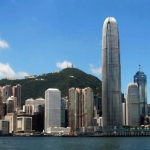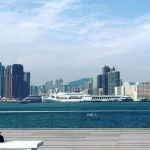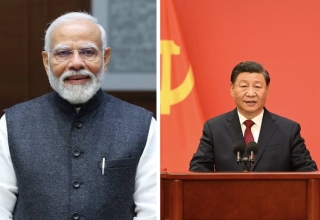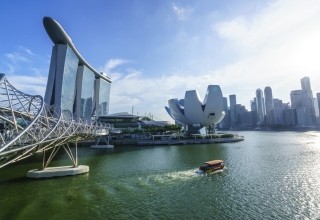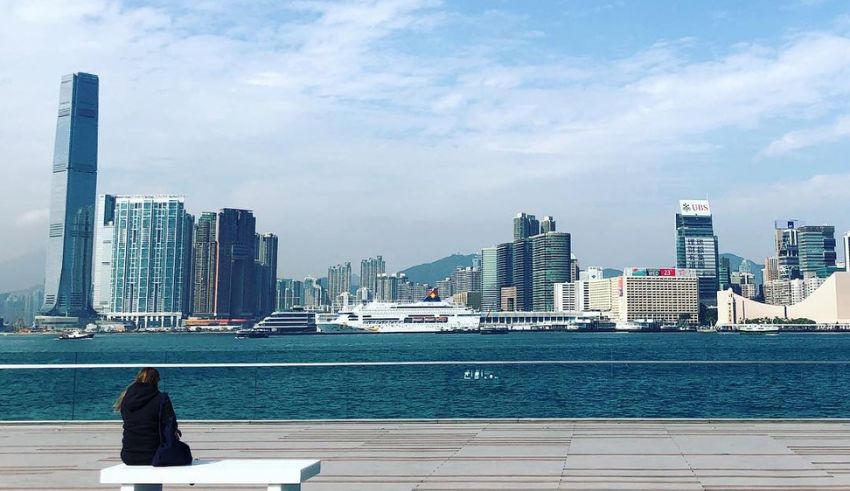
Chu Kai-pong, a 27-year-old male, pleaded guilty to charges of sedition in Hong Kong on Monday, therefore subjecting himself to a long jail sentence. His transgression was Wearing a protest T-shirt, which cops claim goes against the recently strengthened national security rule of the city. Chu’s case emphasizes the more severe policies Hong Kong‘s government is enforcing as it keeps suppressing dissent and protest activity in line with the national security statute Beijing adopted in 2020.
Previous Conviction for Protest Slogans
Chu has experienced legal repercussions for his participation in pro-democracy demonstrations not once but rather several times. Earlier this year, in January, he spent three months in prison for a similar charge—sedition—resulting from his possession of protest-related clothes and banners. Authorities judged the slogans on these products offensive and against national security law. Among these catchlines was “Liberate Hong Kong, revolution of our times,” which has become famous inside the city’s protest movement. A different court decision concluded that this slogan was found to be “capable of inciting secession,” a major violation under the new legal system.
Chu’s present sentence stems from an event on June 12 whereby he was arrested for donning a mask with identical protest language and a T-shirt emblazoned with the divisive slogan. For pro-democracy activists in Hong Kong, June 12 is especially meaningful since it is the date of the large-scale, occasionally violent demonstrations in 2019 that attracted international notice. Emphasizing that the statement was a call for Hong Kong’s return to British sovereignty, Chu told police that by picking this clothing, he sought to remind the public of the 2019 demonstrations. The authorities saw it differently, though, as a threat to national security.
First Conviction Under stricter Legal Framework
Under Hong Kong’s freshly changed national security statute, Chu’s guilty plea to one count of “doing acts with seditious intent” represents the first conviction. Enacted in March of this year, the amendments enhanced Beijing’s already strict rules first implemented in mid-2020. Apart from redefining sedition, the new law raises the maximum jail sentence for such crimes. Originally limited to two years, the maximum punishment has since been increased to seven years since the law expands the definition of seditious activities. This covers acts judged to inspire hate toward the communist government of China.
Although two further allegations against Chu—loitering and not producing an ID card—were dropped—his legal problems are far from gone. After three months of custody already, he will be sentenced on Thursday. Although Chu’s attorney is advocating a two-year maximum sentence, it is unclear how long he will stay behind bars given the revised law’s increased seriousness of sedition allegations.
The New National Security Law and Its Increasing Dominate Reach
Passed in March of this year, the updated national security law is the second such law adopted after the one Beijing enforced in 2020 to stifle the demonstrations engulfing Hong Kong. The revised form sharpens fines for sedition, a charge stemming from Hong Kong’s colonial past. Originally developed during British control, which came to an end in 1997, the seditious offence has not been utilized very much in the years following the handover. But authorities have started using it again following the 2019 demonstrations and the adoption of the national security bill. Since 2020, under this clause about fifty people and four businesses have been charged.
Keep Reading
Apart from sedition, the amended legislation specifies harsh fines for five further forms of crimes: treason, revolt, sabotage, espionage, and outside intervention. Hong Kong’s attempt to limit any actions that would compromise the city’s government or threaten China’s sovereignty over it depends on this all-encompassing approach to national security.
Western countries, especially the United States, which contends that the tightening of security measures in Hong Kong compromises liberties and stifles opposition, have harshly attacked the laws. Many view the restriction on speech and protest activity as proof of Hong Kong’s declining autonomy—a territory long noted for relative freedom from mainland China.
Nonetheless, Hong Kong authorities have constantly supported the law, claiming that stability and national security depend on it. Officials contend the rule satisfies a “constitutional responsibility” and compare it to a “reliable lock to prevent someone from breaking into our house.” Arguing that it is essential to protect Hong Kong’s future, the government of the city goes ahead in executing the law despite growing worldwide criticism.
A Rising Count of Arrests and Convicts
Arrests and convictions have gradually increased since the national security laws were enacted. Under the two security regulations, 301 people have been detained as of last month—many for behaviors that would have been deemed normal protest activity prior to 2020. Emphasizing the government’s will to implement the new legal framework, out of those detained 176 have been prosecuted and 157 have already been found guilty.
Chu Kai-pong’s case is only one of many whereby Hong Kong citizens suffer harsh fines for activities that earlier would have been considered as manifestations of free speech. The legal environment of Hong Kong is still being shaped by the national security law, which is causing citizens to be more and more limited in their capacity to voice disapproval or protest. Although the entire effect of these laws on the future of the city is yet unknown, officials’ message is clear: any challenge to the government or its laws will be greeted with quick and harsh reactions right now.
